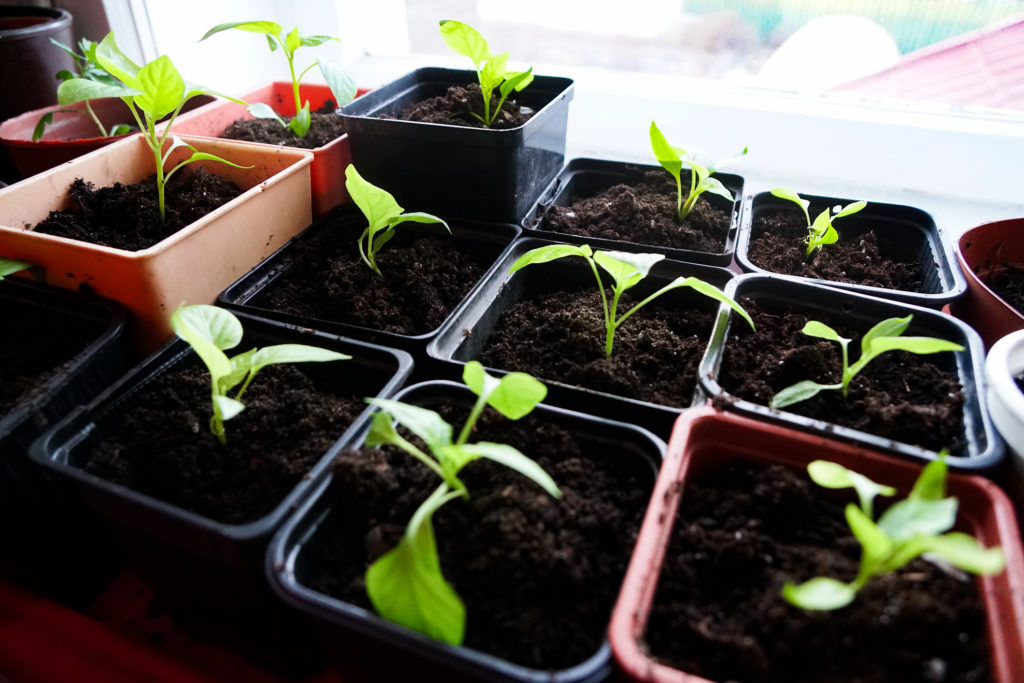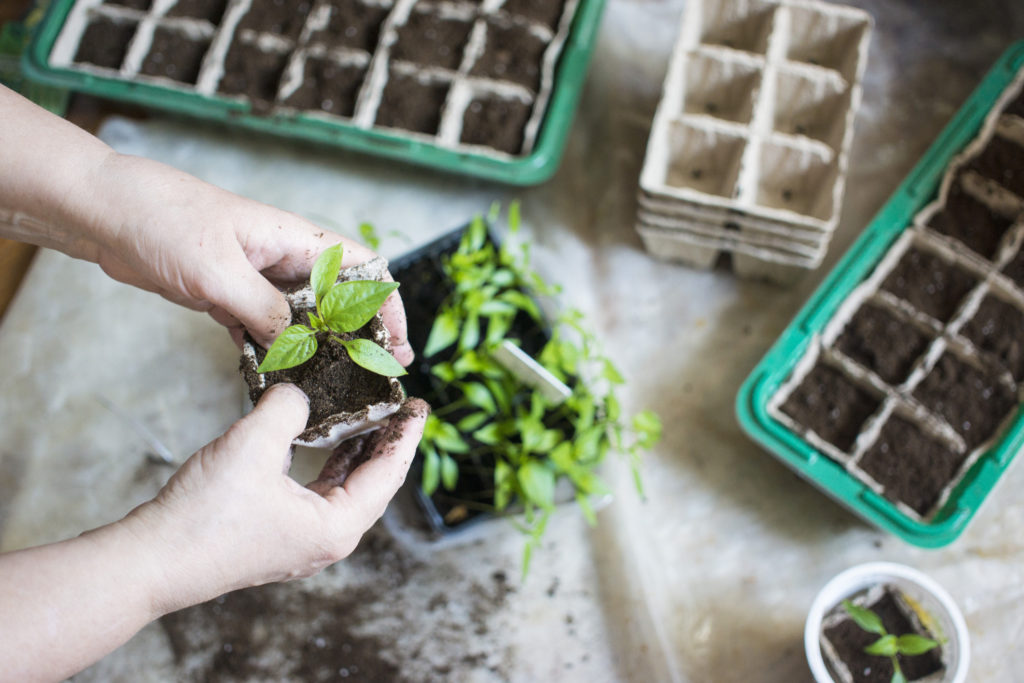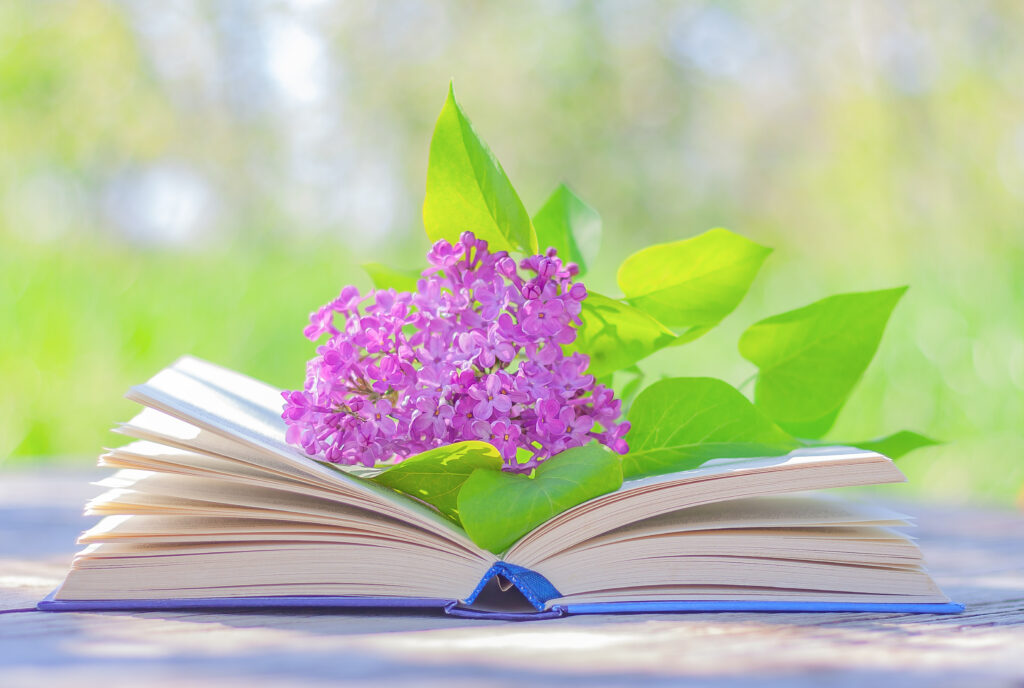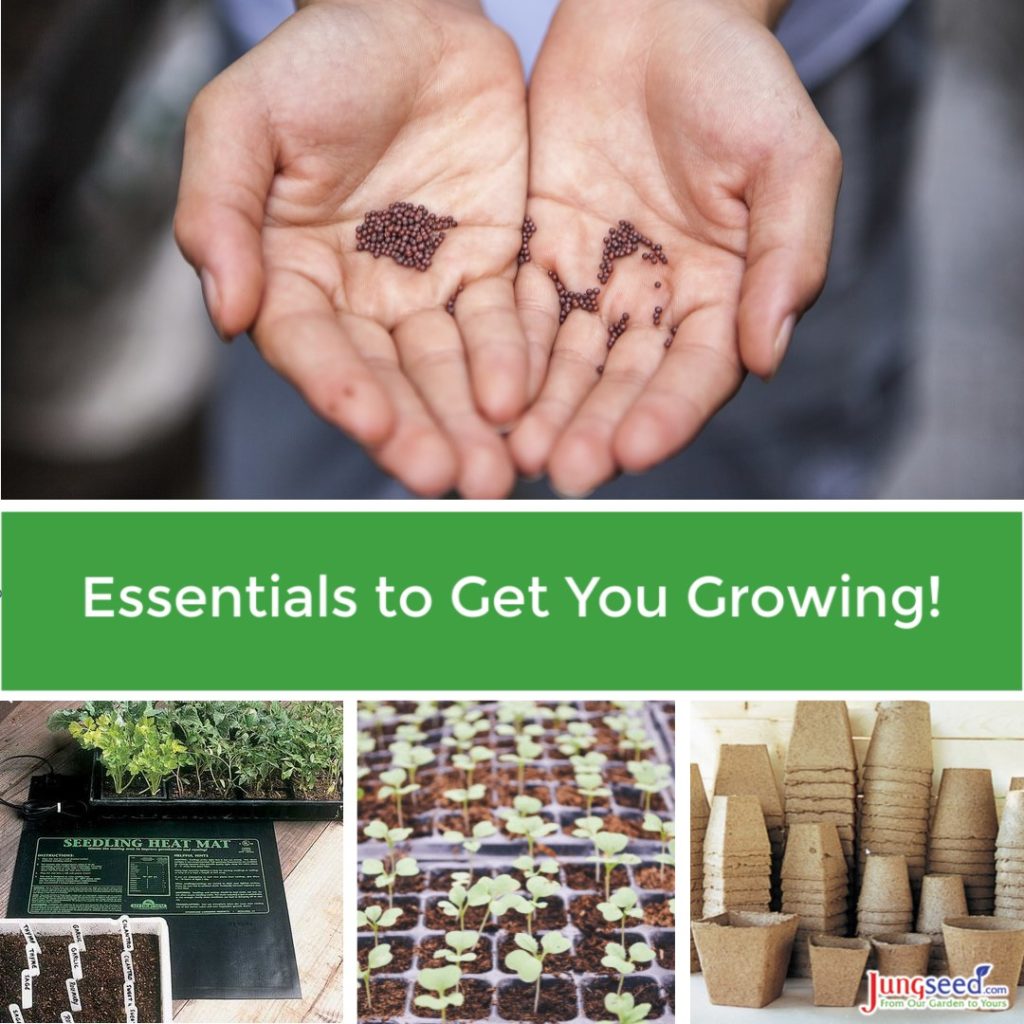
If the plant’s roots have become so large they fill all the space in the pot, they can become stressed and won’t perform well, when it’s time to move them into the garden. To maintain proper growth and health for your plants, their roots require good air circulation and sufficient moisture for proper nutrient uptake. Before they become root-bound, make a plan for transplanting your plants into larger individual pots.
Choose pots that are 2″ to 4″ in diameter and height or use the general rule that their new pots should offer about 25% more root space than it presently has. Transplanting is a little extra work but pays dividends in transplant success and eventual yields. It also makes the ‘hardening off‘ process much easier.
Handling Your Seedling During Transplanting

A key tip when handling a seedling is never to handle it by its stem. Once damaged, a stem usually doesn’t recover. Handle seedlings by their true leaves instead. Breaking a leaf is not as harmful as accidentally crushing their stems. Once a seedling is loose you can cradle and handle it more safely by the rootball. Make an opening in the soil mix in the pot and gently insert the rootball, lightly firming the new soil around it. A kitchen fork or single chop-stick works well for removing the root ball from its original liner pot.

When To Transplant Seedlings To The Garden
Even when temperatures climb high enough to think about transplanting plants into the garden, don’t rush it. Your precious seedlings will need to harden off so they can tolerate the harsher, real-world environment of the outdoors, without getting too stressed. Always calculate 1 full week into your planting schedule for this gradual hardening off period.

Find a safe, wind-protected, critter-free place in part sun or dappled sunlight to put them in during the warmest part of the day. Consider it “Plant Recess”. Before the sun drops below the horizon in the afternoon, bring your plants back indoors for the night. Make sure you water them well before they go out and after they come in from this recess. The soil will dry quicker with more air-flow and exposure, so check on them frequently during the hardening off period. Watch for wilting or early signs of distress. You’re trying to avoid stress, not cause it. 2 to 4 hours out per day is adequate for hardening off and remember any time you can give them is way better than none!
Vegetables That Don’t Like Transplanting
Some vegetable plants don’t appreciate or take to transplanting. Many root-type crops like carrots, beets, turnips, and parsnips are not conducive to planting in containers and up-potting. Also, most cucurbits like cucumbers, gourds, and watermelon plants don’t like to have their roots disturbed. For these types of plants, starting them in plantable Jiffy® Square peat pots or Jiffy-7® wettable wafers works best. All their roots are safely contained and both these options can be planted directly into the garden after plants get hardened off a bit. Even with these plantable pots, it’s valuable to gently clip corners off the peat pots or score the bottom of the Jiffy-7 netting prior to planting out, to give new roots an easier time of escaping into their amended garden soil. Peas and beans are fussy about transplanting, so this option is suitable for them as well.
Other Recommended Reading

- Companion Planting Guide
- Seed Starting FAQ
- 22 East to Grow Vegetable Seeds
- Seed Germination Guide
- Sow Seeds of Victory: Planting a Victory Garden
At Jung Seed Co, we strive to be your go-to guide for all your gardening needs. Our YouTube channel Jung Garden Center now includes our new video series All Things Green where our experts provide gardening tips for all levels of gardeners. When you need reliable gardening advice, turn to the trusted experts at Jung.
View our new catalog online or browse our website for all of your gardening favorites. To receive info on new products, exclusive deals, and specials, be sure to sign up for our weekly email. Join our Facebook page, to discuss all things gardening!
